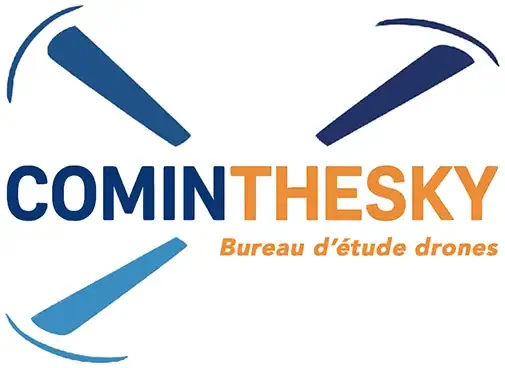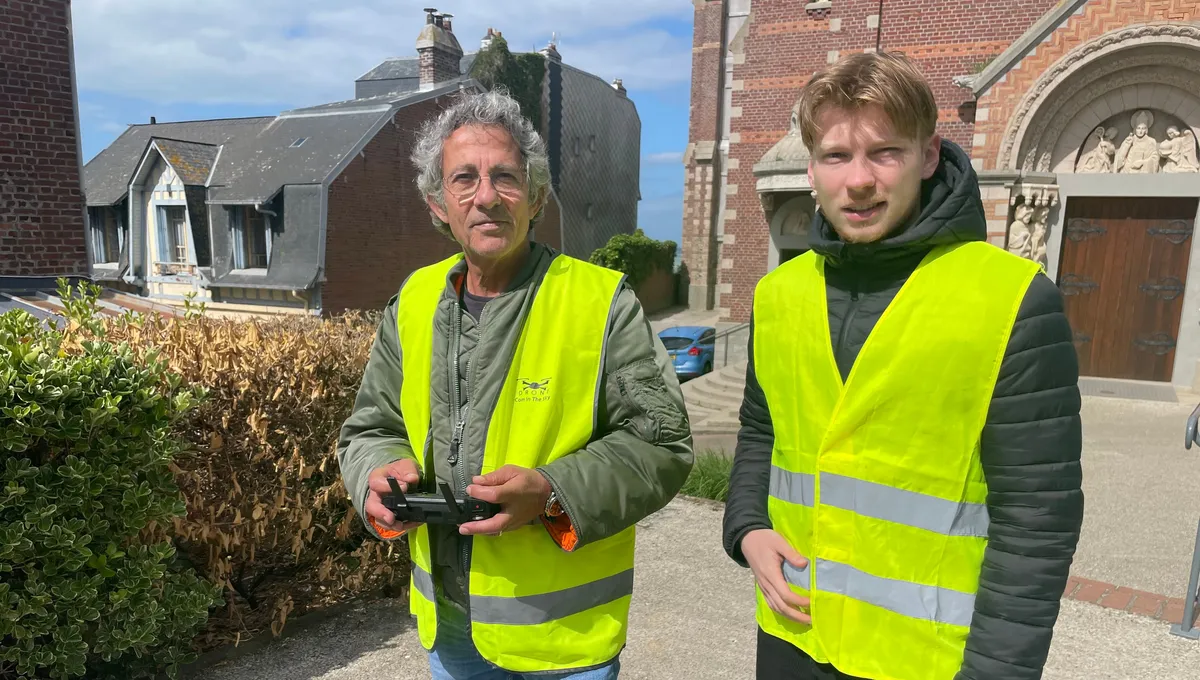In Mers-les-Bains, drones are sterilizing seagull eggs.
Seagulls, responsible for noise, droppings, and sometimes even aggression, are particularly numerous in Mers-les-Bains. Their presence causes many nuisances: noise, fights, droppings, and even assaults. Some town councils have decided to directly sterilize their eggs in the nests to control their population. This is the case in Mers-les-Bains.
That morning, near the Saint-Martin church, several silver seagulls circle around a building. Ricardo Boimare, in charge of this issue at the town hall, explains: “These birds cause a lot of nuisances.” For several years, the municipality called in rope access technicians to sterilize the eggs using formalin, but this method proved to be ineffective, he admits. That’s why, this year, the town turned to a drone specialized company. “The advantage of this method is that we no longer need the presence of the nest owner,” he adds.
Raphael Dahan, a drone pilot at Cominthesky, is about to launch two drones: “The first drone is used to locate nests, because not all reports necessarily correspond to existing nests.” Once the nest is identified, the second drone takes off, equipped with a small bottle connected to a pump filled with rapeseed oil. “It’s an eco-friendly approach: the oil plugs the pores of the egg, preventing the embryo from developing without harming the species,” explains Raphael.
This treatment targets only one of the three species of seagulls present on the coast, namely the argentatus gull, which is protected like the others. Ricardo Boimare clarifies: “Only the argentatus gull can be treated because the common gull and the black-headed gull are strictly protected. Primarily, it’s the argentatus that causes nuisances: noise, fights, thefts, droppings, clogged gutters, and sometimes aggressive behavior.” Moreover, the drone seems to disturb the birds, and some have even managed to knock it down! “Quick action is necessary during the operation,” warns Raphael Dahan.
A second round will be needed in three weeks to treat the nests that have already been sprayed with oil, to prevent hatching. The town hall is spending €9,000 this year for around 600 eggs sterilized.


